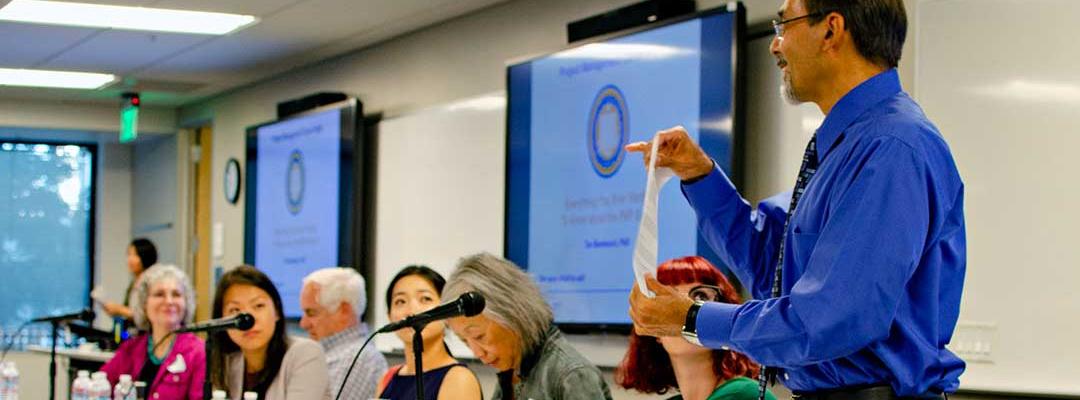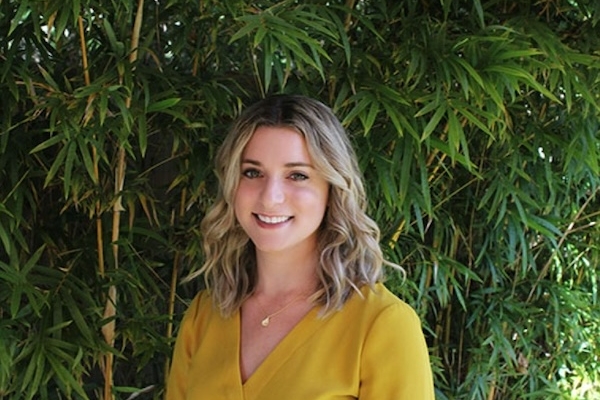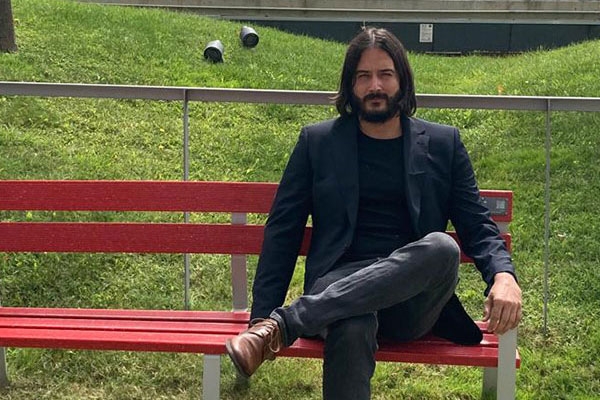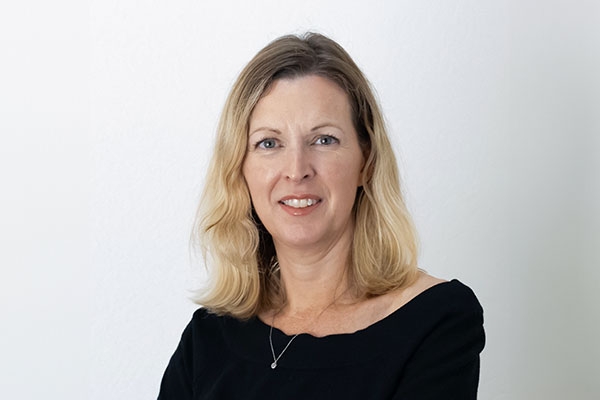On Wednesday, August 14, current Project Management certificate students and others who are interested in taking the PMP® Exam came to our San Francisco location to hear how our esteemed panelists have passed this rigorous test—and their tips to do so!
But first, some information about this exam below or as an infographic.
What is PMP® Certification?
- The PMP® exam is administered by the Project Management Institute.
- It certifies that you have mastered a core set of skills as a project manager and that you have a certain level of experience. That’s important because when you go to apply for jobs, those three letters on your résumé will say a lot about your qualifications.
- There are close to 1 million PMP®s worldwide.
- Employers report that PMP®s are generally more successful and earn about 20 percent more than those who don’t have the designation.
Career Prospects
Between 2017 and 2018, nearly 20,000 unique new jobs in the Bay Area listed having the PMP® as a qualification. Among the top fields are high-tech, health care, education, consulting, consumer electronics, social media and finance; other industries are also well represented.
Exam Eligibility Requirements
If you have at least a bachelor’s degree, you need to show:
- 36 months of non-overlapping professional project management experience
- 35 hours of project management instruction
If you do not have a bachelor’s degree, you need to show:
- 60 months of non-overlapping project management experience
- 35 hours of project management instruction
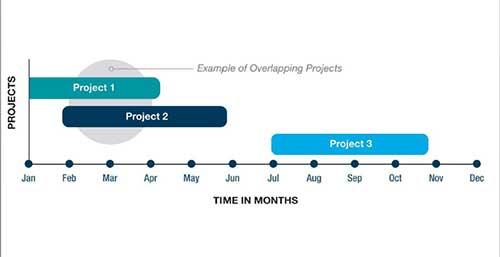
How to Show Your Experience
Include work from any of the knowledge areas or process groups, including:
- Defining or managing scope
- Estimating duration and costs
- Managing a schedule
- Performing quality assurance or control activities
- Managing project risk
- Reporting or stakeholder/communication management
- Creating deliverables
How to Apply for the Exam
1. Visit pmi.org/certifications/types/projct-management-PMP
2. Register and log in
3. Download the PMP® Handbook and the PMP® Exam Outline
4. Begin the application process
Pro Tip: Many of our instructors, including Edmond Matevosian, are happy to review your application before you submit it.
Application and Exam Process
1. Complete your application
- Review your application
- Provide required information
- Complete within 90 days
- Submit payment
2. Application is reviewed
- PMI reviews your application within 5 days of your applying
- PMI will notify you if you’re allowed to take the exam or if you are being audited
3. If audited
- You must submit requested materials within 90 days
4. Allowed to take exam
- Schedule the exam with an approved test center
- Complete the exam within one year of being approved
- You may take the exam up to three times within that year
Pro Tip: Audits are random. Be creative with your application. Everything in life is a project if you look at it correctly. Your experience could be volunteer work or educational projects.
Exam Costs
Initial Exam
- PMI Member: $405
- PMI Non-Member: $555
Re-Take Exam
- PMI Member: $275
- PMI Non-Member: $375
Pro Tip: You can’t change your PMI membership status after submitting your application, so become a member before you apply. Make sure you take the test within a year of becoming a member or will need to rejoin after a year.
Current Exam Structure
- Initiation: 13%
- Planning: 24%
- Execution: 31%
- Monitoring and Control: 25%
- Closing: 7%
Exam Structure Effective Dec. 16, 2019
- People: 42%
- Process: 50%
- Business Environment: 8%
Here’s how our panelists prepared and passed for the current exam:
The Panelists

Thaisa Fernandes, PMP®, PSMI, Scrum Master
Program Manager at Twitter
2016 certificate graduate

Tom Kendrick, M.B.A., M.S.E.E., PMP®
Longtime UC Berkeley Extension project management courses instructor

Lifong Liu, PMP®
Managing Director at Global Focus Innovation
Project Execution and Control and Project Schedule and Risk Management instructor

Edmond Matevosian, PE, PMP®
Senior Transportation Engineer at the California Department of Transportation (Caltrans)
Intensive PMP®/CAPM® Exam Preparation and other project management courses instructor
Marjorie Mc Wee, M.B.A., PMP®
Principal, independent contractor and sub-contractor
Completed Intensive PMP®/CAPM® Exam Preparation Course

Siwei Tang, PMP®
Program Project Manager at Aeris Communications
2016 certificate graduate
Sandy Yuen, Certified Payroll Professional (CPP), Lean Six Sigma Green Belt, PMP®
Manager of Payroll Technology and Analytics at Salesforce
Current certificate student
Moderator

Tim Bombosch, Ph.D., Certified Scrum Master, PMP®
Program Director at UC Berkeley Extension
What is the difference between the PMP® credential and the certificate?
Tim Bombosch: Our certificate covers what you need to know to pass the exam. Every class asks you to do project work, and you get feedback from your instructors about what’s good and bad about your projects. By the time you finish our certificate, not only do you understand the concepts, but you’ve continually applied them.
Siwei Tang: It’s very difficult to make a career transition to project management without experience so I took the certificate program, which was really helpful to show my management team that I was serious about project management. By taking these courses, I learned the foundation of project management and that helped in my transition. And then I took the PMP® Exam, which gives me a gold star!
Sandy Yuen: Last year, I was assigned as a project manager for a systems-implementation project that would affect 24,000 employees. I had never done a large-scale project like this, so I started taking the Project Management course to understand the framework and build my skill set. I took more courses and then decided to take the PMP® Exam. So I took the prep course, which was really helpful because it gave me the framework on how to pass the exam. I took less than a month to study, but I was taking courses at the same time so I had people to study with who came from all different industries. Now I have my PMP®.
Tom Kendrick: The certificate and the PMP® Exam are synergistic. The certificate is very academic: It works on your résumé much the way a university degree would. Particularly because you get to use the word Berkeley, that catches people’s eye. The PMP® says you have a professional certification from the professional society for project leaders. So the two are a little different, but they support one another.
Graduates, tell us about your experience preparing for the PMP® Exam.
Thaisa Fernandes: I took the test last year. The first thing I did was to let my family and friends know that I was going to be busy studying for the exam—but that I still loved them! My manager was really supportive of me taking the exam and my work was flexible. I created a schedule so that I could study for four hours every day and basically all weekend. I only had three months to study for the test.
Siwei: I took the PMP® Exam right before completing the certificate. I took the prep course and did hundreds of mock questions online. I was continuously studying for the exam, even when I was traveling internationally for work. The day I took the exam, I felt ready and watched Finding Dory in the morning and took the exam that afternoon. [Laughs]
Marjorie Mc Wee: By taking the prep class, I became comfortable with the framework. I read some additional resources to fill in the blanks and kept working across that whole framework and understanding the individual processes. I also took a PMI boot camp about a month before I took the exam. I started taking a lot of online tests. At the end, I had this Rubik’s Cube of information—a landscape of different ways of looking at the content. I think that’s why I passed the exam.
Any advice on using test guides?
Tom: I recommend you seek out multiple books, websites and other resources, but realize that most of what’s out there—especially with printed books—may be out of date because the test questions are still old. That said, project management as a field hasn’t changed that much. So the questions will help you find out what you really know and the areas that you need to work on. You’ll get a sense of where you need to study to fill in those gaps.
Sandy: Kim Heldman’s book is great to understand the process. The questions in there are difficult but not that similar to those in the exam. When you do the prep class, you study questions that align closely to the exam. The Andy Crowe book is great for practice questions.
Marjorie: I found Kim Heldman’s book to be more esoteric and the practice questions not that helpful. I did run across Rita Mulcahy (RMC)’s book, which I found to be an excellent capstone. It does an excellent job of the critical-thinking aspects. Aileen Ellis’ books do a deeper dive into the subject areas—such as scheduling, contracts, math pieces—and that gave me more practice in those specific areas.
Strategies for writing down things during the exam?
Sandy: They give you laminated paper—you can write on one side with a marker and the other side shows instructions. If you want more paper, you have to return the original piece of paper. So make sure you have space for your formulas. When you start the exam, there’s a 5-minute tutorial with survey questions and you can start writing your formulas. And then once the survey is done, you have 15 minutes to view a tutorial, so always select the tutorial because that’s 15 free minutes to write down all of your formulas, all of your domain, your framework. And then once you’re comfortable, click start and that’s when they start timing you.
Marjorie: Instructor Cheryl Allen gives you a framework for identifying key formulas and aspects of the PMBOK® that you’re going to want to recall very quickly. And if you get that ingrained in your mind, you probably don’t need to write it down. I did a lot of mnemonics and visual imagery to remember the things that I always tripped up on. I visualized that I was at a basketball hoop and just throwing the ball. Each question was a separate throw. I had a specific way of analyzing and diagnosing the type of question being asked. Based off of that, I would land into where I was in the framework and what I should think critically about.
Did anybody go back and review your answers?
Thaisa: I had a lot of math on my exam. When I came back to some of the questions, I think I was too tired and I started to second-guess. But I left my original answers—and it was the best thing I did because I passed! [Laughs]
Siwei: When you are doing your mock questions, you want to notice those that you go back to and are second-guessing. For me, I flagged maybe 30 questions for review and I had 40 minutes left. I thought to myself, “Why am I reviewing these? If there’s a better answer, why do I think that?”
How did your pace your time?
Edmond: If you do the calculations, you have about 1 minute and 12 seconds per question. But there are some questions you can answer in 30 seconds, so you start building excess time. Read every question twice and make sure you read all of the answers. Your first instinct is typically the right one. There are some questions that you can eliminate two answers and then use logic to determine your answer.
Lifong Liu: There are three types of questions on the exam: situational, calculation and the tools you would use. Your job is to pick one of the best answers. That’s why you need to study the PMBOK®, because PMI has precise wording about the process name and tools and techniques.
How has the credential helped you?
Sandy: Ever since I put PMP® on my LinkedIn profile, I have appeared in a lot of searches from recruiters and more jobs related to project management than finance.
Siwei: When I got my PMP®, I had already been working as a project manager for many years. Getting the PMP® helped increase my salary at the company. When clients see I have PMP® next to my name, they know that I understand processes and how to run a project. There’s a lot more trust from my clients.
Thaisa: Although I had a lot of experience working as a project manager, most of it was in Brazil. Getting the PMP® was another way I could prove myself. It also gave me more self-confidence—to be more bold and try new ways of doing things. My boss loves to tell clients that I’m PMP® certified. [Laughs]
